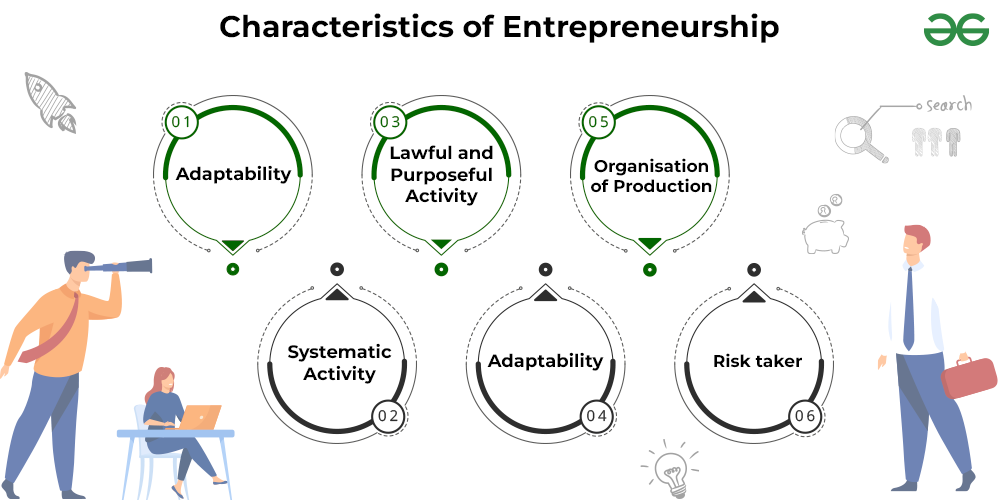Renowned Harvard economist Stefanie Stantcheva has made waves in the field of public finance and tax policy, earning her the prestigious John Bates Clark Medal in 2025. Recognized for her groundbreaking research and insights, Stantcheva’s work significantly highlights the impact of tax systems on economic innovation. As the Nathaniel Ropes Professor of Political Economy, she emphasizes the powerful role of effective tax design in fostering or hindering economic activity. “The tax system can make or break an economy,” she asserts, underlining her belief in its potential to either promote innovation or stifle growth. With her recent studies shedding light on the complexities of taxation and its effects on innovation, Stefanie Stantcheva is undoubtedly a leading voice in addressing today’s economic challenges.
Stefanie Stantcheva, a prominent figure among young economists, continues to influence the discourse on fiscal policies and their broader implications for economic growth. Her recent accolades, including the American Economic Association’s sought-after recognition for under-40 economists, underscore her contributions to reshaping public finance and taxation narratives. By exploring how tax policies affect innovation and economic behaviors, she reveals critical insights that inform both policymakers and scholars alike. Through initiatives like the Social Economics Lab, Stantcheva investigates the nuanced relationship between societal attitudes and economic constructs, driving forward an innovative approach to understanding how economic principles can adapt to contemporary challenges.
Stefanie Stantcheva: A Trailblazer in Economic Innovation
Stefanie Stantcheva’s recognition with the John Bates Clark Medal marks a significant moment in the realm of economics, highlighting her innovative contributions to understanding the nexus between taxation and economic behavior. As a Harvard economist, her research has delved deeply into how tax policy can stimulate or stifle economic innovation. The award not only honors her achievements thus far but also sets a precedent for the importance of leveraging economic policies to foster a thriving economic landscape.
Her influential paper, “Taxation and Innovation in the 20th Century,” showcases the relationship between tax policy and innovation, demonstrating that changes in taxation significantly impact the rate of innovation. Stantcheva’s findings contribute to a growing body of knowledge that highlights how carefully crafted tax policies can enhance public finance outcomes, making her work pertinent as policymakers consider strategies to foster economic growth in the face of challenges.
The Impact of Tax Policy on Economic Behavior
Tax policy plays a crucial role in shaping economic behavior, as underscored by Stantcheva’s research. The elasticity of innovation in response to tax changes suggests that entrepreneurs and businesses are sensitive to tax structures. As Stantcheva points out, an optimized tax system can significantly boost innovation, leading to more robust economic development and societal progress. This reality prompts a reevaluation of existing tax policies by governments seeking to improve public finance and stimulate economic activities.
Moreover, Stantcheva’s insights highlight the complexities involved in tax policy formulation. The negative correlation between higher taxes and the quantity of innovation illustrates the double-edged sword of taxation; while taxes are essential for funding public services, they can also disincentivize entrepreneurial endeavors if not managed correctly. Therefore, it becomes vital for policymakers to strike a balance that maximizes economic benefits while ensuring adequate public funding.
Harvard’s Role in Economic Education: Shaping Future Economists
Harvard University has long been a cornerstone of economic education, producing influential economists like Stefanie Stantcheva. The institution’s robust economics department fosters a dynamic environment where emerging scholars can explore significant questions in public finance and economic innovation. This nurturing academic atmosphere enables students and faculty alike to engage in groundbreaking research that can reshape understanding and implementation of economic policies across the globe.
Furthermore, events celebrating achievements like the John Bates Clark Medal illustrate Harvard’s commitment to recognizing and promoting excellence in economics. The university not only showcases the successes of its current faculty but also sets a benchmark for aspiring economists. By supporting innovative research and encouraging intellectual collaboration, Harvard plays an indispensable role in shaping future leaders in the field of economics.
Exploring Social Economics: Stefanie Stantcheva’s Contributions
Stefanie Stantcheva’s establishment of the Social Economics Lab in 2018 reflects her dedication to understanding the social dimensions of economic policies. The lab focuses on diverse issues, including trade, immigration, climate change, and social mobility, highlighting the multifaceted nature of economic interactions in society. By addressing these varied topics, Stantcheva aims to uncover how social factors influence economic behavior and policy effectiveness.
In her recent studies, the interplay between emotions and economic decision-making emerges as a critical area of interest, showcasing Stantcheva’s innovative approach to economics. This broader perspective enhances the traditional economic framework by incorporating psychological and social elements, making her research not only relevant but also essential for comprehensive policy formulation. As such, her work is instrumental in paving the way for future economists to consider a more holistic approach to economic theory and practice.
The Significance of the John Bates Clark Medal
The John Bates Clark Medal stands as a prestigious accolade in the field of economics, awarded to economists under the age of 40 who have made significant contributions to economic thought and application. Named after the economist who influenced early 20th-century economic theories, the medal is a testament to the winners’ impact on both theoretical and practical economics. For recipients like Stefanie Stantcheva, it marks not just an individual achievement but also recognizes the potential for innovative economic solutions to emerge from younger scholars.
This award serves to highlight the importance of nurturing new ideas within economics, especially in a rapidly changing global landscape. As the economic challenges evolve, it becomes crucial to support young economists who are willing to push boundaries and explore new territories. The John Bates Clark Medal thus plays a vital role in inspiring both recognition and growth within the field, ensuring that fresh perspectives contribute to shaping effective economic policies.
Contributions to Public Finance: Insights from Stantcheva’s Research
Stantcheva’s work in public finance has notably advanced the understanding of how tax policy impacts economic outcomes. By rigorously analyzing the effects of taxation on innovation, her research provides policymakers with empirical evidence needed to design tax systems that effectively stimulate economic growth. The insights drawn from her studies serve as a guiding framework for developing progressive tax strategies that could enhance public finance while fostering a more innovative economy.
Moreover, the implications of her findings expand beyond mere theory; they offer actionable insights for governments grappling with how to optimize taxation in ways that encourage entrepreneurship and investment. As economic pressures continue to evolve, adapting tax policy to resonate with Stantcheva’s research could lead to sustainable growth and improved public services, ultimately benefiting society at large.
Stefanie Stantcheva’s Vision for Economic Research
Stefanie Stantcheva’s vision for future economic research encapsulates a commitment to understanding the intricate relationships between policy, social factors, and economic behavior. Her work seeks to interrogate the assumptions that underlie traditional economic theories, integrating elements of emotional intelligence and societal perceptions into the analysis of policy effectiveness. In this light, Stantcheva’s unique approach not only enriches the academic discourse but also empowers policymakers with the tools needed to create more nuanced economic interventions.
As she continues her endeavors at the Social Economics Lab, Stantcheva expresses an eagerness to delve into the complexities of human psychology and its role in economic decision-making. By focusing on areas like zero-sum thinking, her research aims to unravel how perceptions of fairness and competition can influence economic behaviors and outcomes. This innovative focus stands to reshape how economists and policymakers perceive economic interactions, laying the groundwork for more inclusive and effective economic policies.
Taxation and Innovation: A Constant Dialogue
The dialogue surrounding taxation and innovation remains ever-relevant in economic discussions, particularly as countries strive to foster environments ripe for business development. Stantcheva’s research significantly contributes to this ongoing conversation, providing vital insights into how tax rates can incentivize or hinder innovation efforts. By examining the elasticity of innovation with respect to tax policy, her work informs debates on how best to structure taxes to promote not only short-term growth but also long-term economic resilience.
Furthermore, the impact of such research extends beyond academic circles, influencing governmental approaches to taxation. Policymakers can draw from Stantcheva’s findings to implement tax policies that effectively stimulate innovation, ensuring that economies can adapt and thrive amidst change. This synergy between economic research and policy formulation exemplifies the critical role that economists like Stantcheva play in shaping the future of public finance and economic development.
Celebrating Economic Achievements at Harvard
The celebration of economic achievements at Harvard reflects the university’s commitment to excellence and innovation in the field of economics. With events recognizing awards like the John Bates Clark Medal, Harvard underscores the significance of scholarly contributions that shape intellectual discourse and policy development. This recognition of Stefanie Stantcheva not only highlights her individual accomplishments but also signifies the university’s role in fostering a vibrant academic community dedicated to advancing economic understanding.
Moreover, the university’s celebration serves as an inspiring reminder of the collective achievements within the Economics Department, where collaboration among scholars fuels groundbreaking research. By honoring accomplishments like Stantcheva’s, Harvard reinforces the importance of continued investment in economic education and research, ensuring that emerging questions in public finance and economic innovation remain at the forefront of academic inquiry.
Frequently Asked Questions
Who is Stefanie Stantcheva and what is her contribution to economics?
Stefanie Stantcheva is a Harvard economist recognized for her pioneering research on tax policy and economic innovation. She was awarded the John Bates Clark Medal in 2025 for her significant contributions to public finance, particularly her insights into how tax systems influence economic behavior.
What is the John Bates Clark Medal and why was Stefanie Stantcheva awarded it?
The John Bates Clark Medal is an annual award given to an economist under the age of 40 who has made significant contributions to the field. Stefanie Stantcheva received the award in 2025 for her work on tax policy’s impact on economic innovation and public finance.
How does Stefanie Stantcheva’s research influence tax policy?
Stefanie Stantcheva’s research highlights the powerful role of tax policy in shaping economic behavior. Her findings indicate that well-designed tax systems can encourage innovation, while poorly designed tax structures can hinder economic activity.
What key insights did Stefanie Stantcheva provide in her 2022 paper on taxation and innovation?
In her 2022 paper ‘Taxation and Innovation in the 20th Century’, Stefanie Stantcheva and her co-authors found a high elasticity of innovation response to tax changes, revealing that while higher taxes can negatively affect the quantity of innovation, they do not necessarily impact the quality of inventions.
What is the focus of the Social Economics Lab founded by Stefanie Stantcheva?
The Social Economics Lab, founded by Stefanie Stantcheva in 2018, focuses on understanding how individuals perceive economic issues and policies. Current research explores themes like the relationship between emotions and policy and concepts such as zero-sum thinking.
Why is tax policy important according to Stefanie Stantcheva’s research?
According to Stefanie Stantcheva, tax policy is crucial because it can significantly influence economic outcomes. A well-crafted tax system can stimulate innovation and economic growth, while an inefficient one may deter activity and hinder economic development.
How does Stefanie Stantcheva’s award reflect on Harvard’s Economics Department?
Stefanie Stantcheva’s receipt of the John Bates Clark Medal in 2025 is a testament to the strength and excellence of Harvard’s Economics Department, showcasing the department’s commitment to producing impactful research in the field of economics.
| Key Points | |
|---|---|
| Stefanie Stantcheva awarded the 2025 John Bates Clark Medal for being a leading young economist. | Recognized for her pioneering research in tax policy and its effects on innovation. |
| Emphasized the tax system’s role in economic activity during her acceptance speech. | Advocated for well-designed tax policies to encourage innovation rather than hinder it. |
| Published significant research on taxation and innovation, indicating high elasticity of innovation to tax policy changes. | Found that while higher taxes reduce the quantity of innovation, they don’t necessarily impact the quality of inventions. |
| Founded the Social Economics Lab in 2018 to explore broader economic and social challenges. | Current research includes the impact of emotions on economics and public policy. |
Summary
Stefanie Stantcheva has made a significant mark in the field of economics, evidenced by her recent recognition with the 2025 John Bates Clark Medal. Her innovative research on tax policy and its implications for economic behavior is reshaping our understanding of public finance. As she leads the Social Economics Lab, her work continues to explore the intricate dynamics of economics in society, making her contributions invaluable to both academia and public policy.










Leave a Reply